Loyola Law School received a special visit Monday morning from U.S. Supreme Court Justice Amy Coney Barrett. Barrett spoke to a crowd of Loyola students, professors and other community members, but her presence was also met with great resentment and frustration.
At 9 a.m., student organizers gathered across the street from Loyola’s law campus on Pine Street to host a rally and picket. They expressed their concerns regarding Barrett’s past voting record on the Supreme Court, primarily concerning affirmative action, Roe v. Wade, and presidential immunity.
The rally was hosted by Liberate and Unite New Orleans Socialists for a Democratic Society, New Orleans Stop Helping Israel’s Ports, and Queer and Trans Community Action Project.
“We are here to voice our disapproval of Justice Barrett’s actions,” LUNO SDS’s press release stated. “We demand that she does not use her religious or personal beliefs in place of legal precedent.”


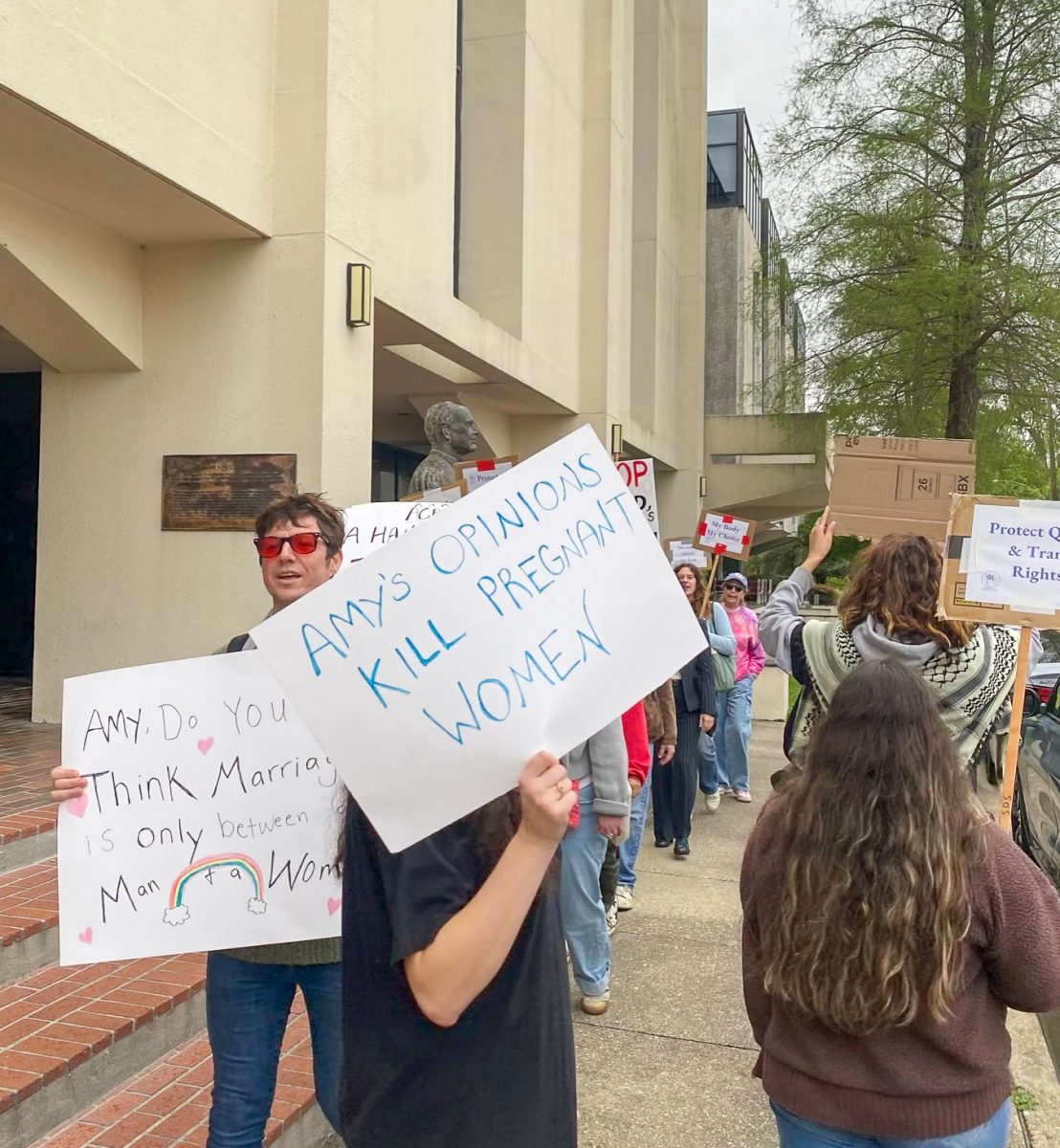






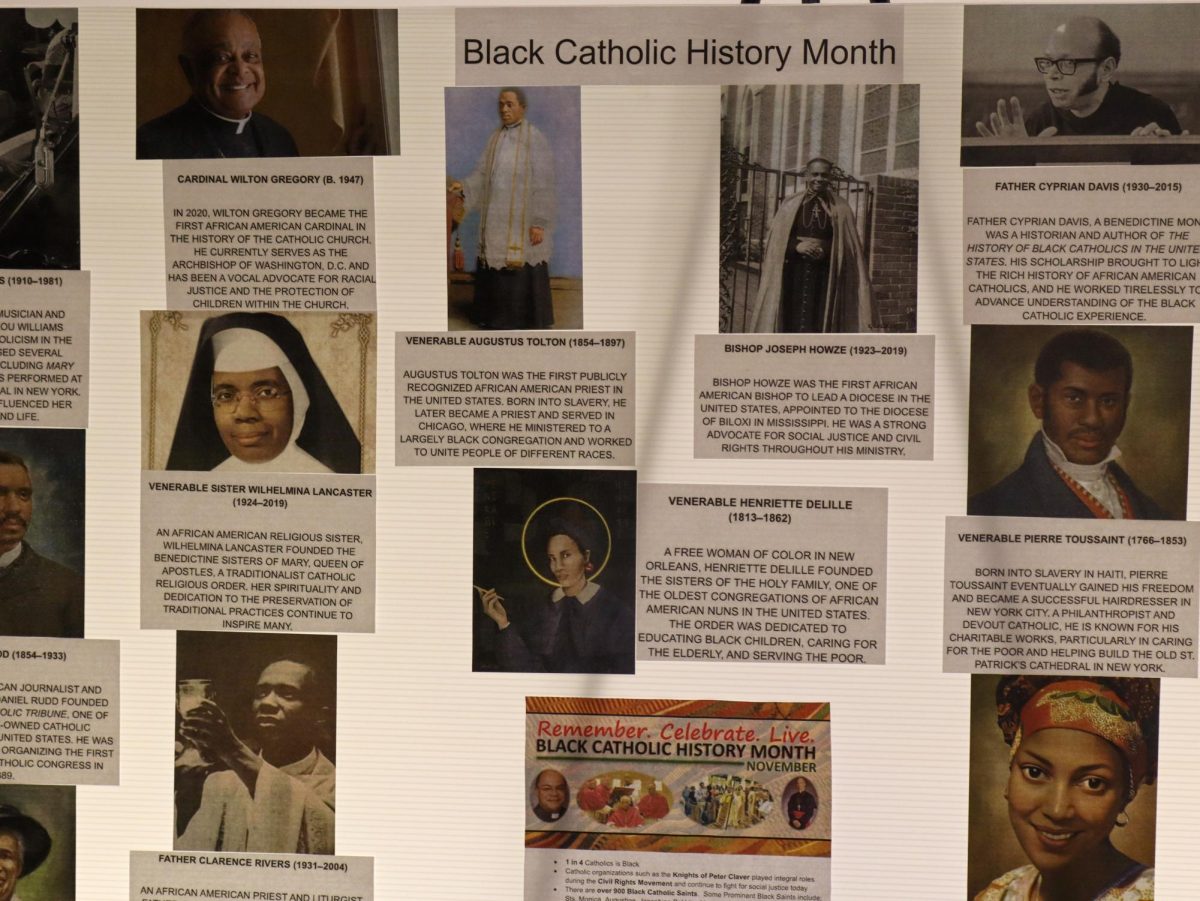

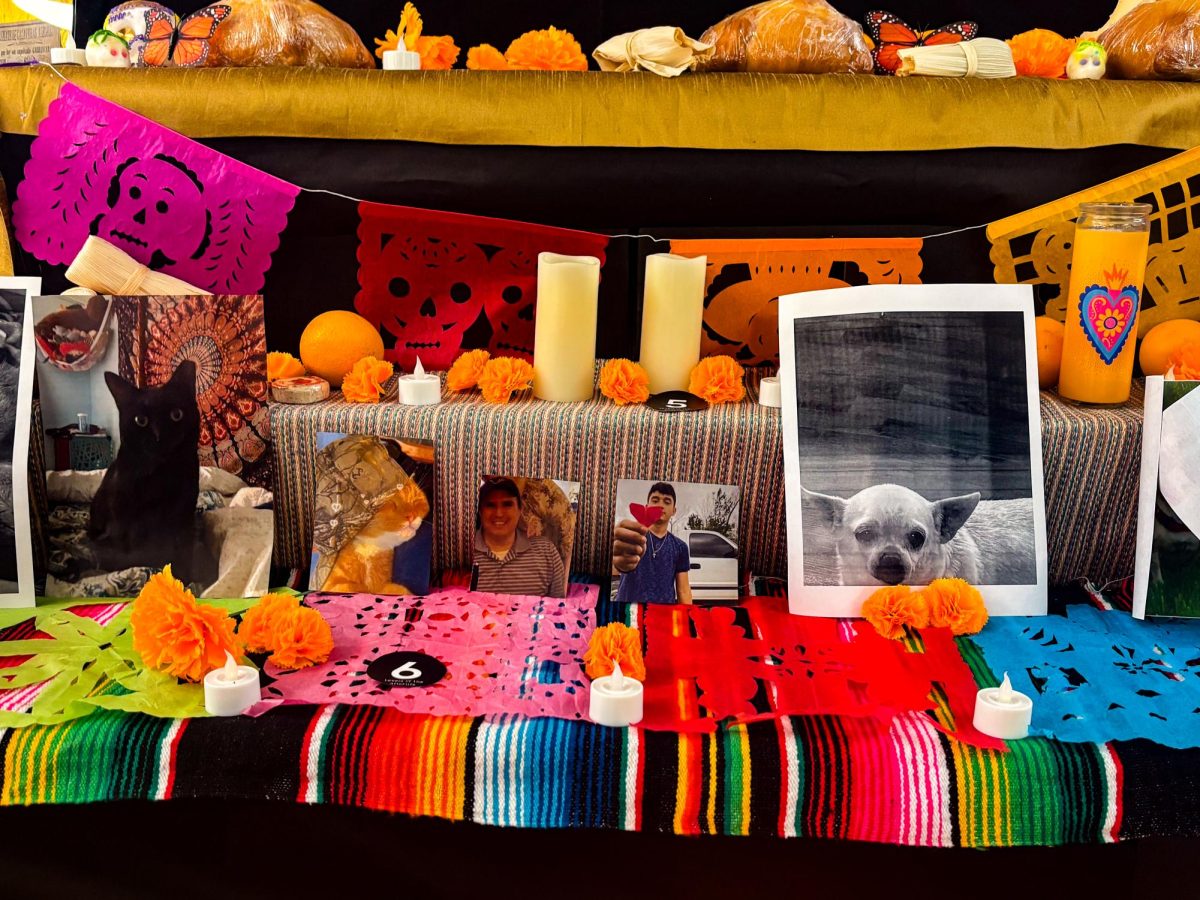

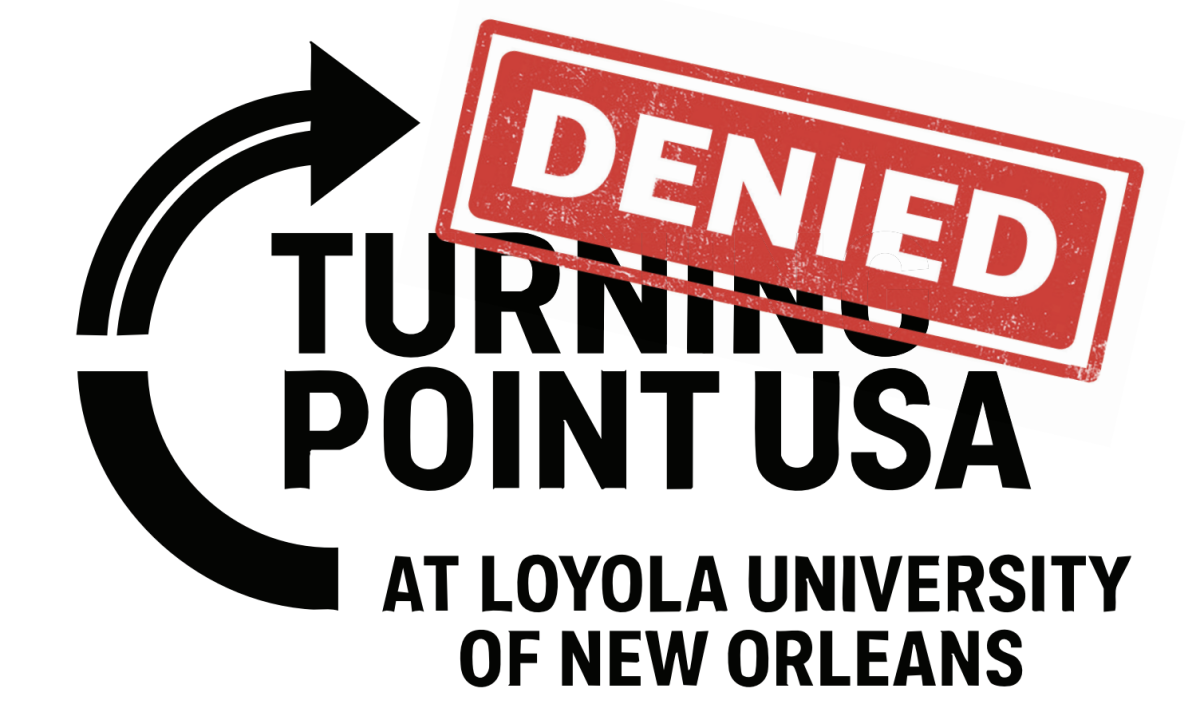
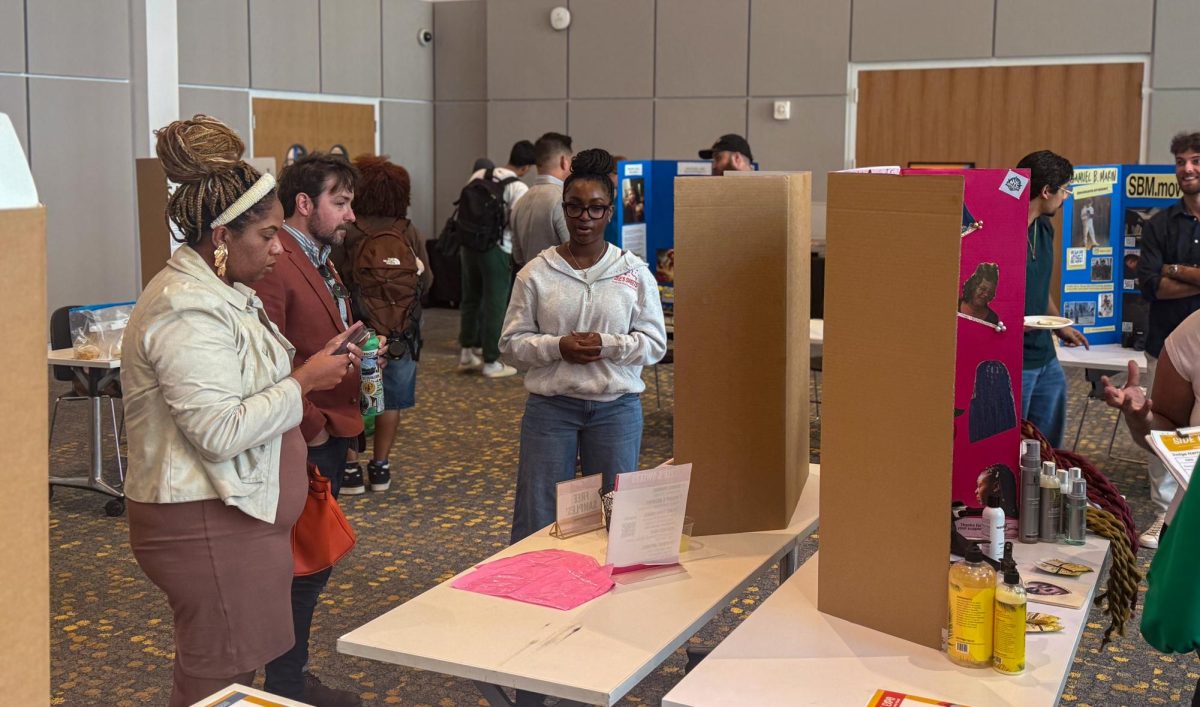







Dorian St. Thomas • Apr 9, 2025 at 6:25 pm
I’m incredibly proud of our brave students who stood up for their values—this kind of action takes courage and conviction. Shame on Loyola for giving a platform to Amy Coney Barrett, whose record directly undermines the rights and dignity of so many in our community.
Here are just a few examples of her deeply concerning positions:
Opposition to Marriage Equality
In 2015, Barrett signed a letter affirming “marriage and family founded on the indissoluble commitment of a man and a woman,” signaling clear opposition to Obergefell v. Hodges, the Supreme Court case that secured same-sex marriage rights.
Affiliation with People of Praise
She is a longtime member of People of Praise, a conservative religious group that promotes male headship and once referred to female leaders as “handmaids”—a term only recently dropped after public scrutiny.
Anti-Abortion Advocacy
Barrett has repeatedly expressed that life begins at conception and signed public statements opposing Roe v. Wade, which she later helped overturn in Dobbs v. Jackson.
Gun Rights for Felons
In Kanter v. Barr (2019), she dissented in favor of restoring gun rights to a man convicted of felony mail fraud, arguing that nonviolent felons should retain Second Amendment protections.
These views are not neutral. They are harmful—and Loyola’s decision to honor her presence sends a troubling message to LGBTQ+ students, women, and anyone who values civil rights.